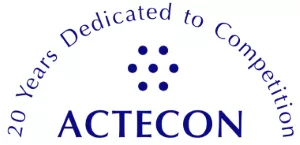In the previous days, the Turkish Competition Authority ("TCA") has published its reasoned decision in which it conditionally cleared the merger transaction1, which is planned to be made through the incorporation of Fiat Chrysler Automobiles N.V. ("FCA") and Peugeot S.A. ("PSA") into FCA. In this regard, especially two points has aroused curiosity: (i) what would be the competitive concerns that may arise after the transaction is realized and (ii) how the commitments submitted by the transaction parties found sufficient in order to eliminate the relevant competitive concerns? Let's have a look at these questions' answers together within this article.
The Effects of the Transaction on the Light Commercial Vehicle Market Have Been Closely Scrutinized
Within the scope of the detailed examinations carried out by the TCA, it has been concluded that the transaction will not lead to competitive concerns on the market for the production and sales of passenger cars. However, the TCA evaluated that the transaction would raise competition concerns on the market for the production and sale of light commercial vehicles with a gross weight of up to 3.5 tons. In this context, (i) the structural link between FCA and Ford due to the fact that their distributions are made by the same holding in Turkey2 and (ii) the market shares and concentration ratios of the undertakings in the relevant market have been particularly taken into consideration. Accordingly, since it was evaluated that the transaction would increase concentration on the market for the production and sale of light commercial vehicles with a gross weight of up to 3.5 tons, whether the transaction results in significant lessening of effective competition was examined in detail as will be discussed below.
The Market Structure is Convenient to Coordination!
Within this framework, first of all, it was underlined that entry to the market is difficult. Indeed, it was stated that the number of new models to enter the market is limited and thus those would not have a distorting effect on the coordination risk of the undertakings that are already ahead in terms of the number of models and have structural link between them. The low product differentiation and the high-capacity utilization rate of the undertakings were also interpreted as factors demonstrating the fact that the market is convenience to coordination.
Again, the existence of multi-market relations between the undertakings in the market, was also evaluated as one of the reasons that increase the coordination risk.
Furthermore, given that the relevant market under investigation is not characterised by sparse and large-volume sales as well as considering the number of customers, it was concluded that it is not possible to say that the buyers have the ability to determine the purchase conditions alone. Accordingly, it was stated that there is no balancing buyer power in the market.
It was also concluded by the TCA that the market is transparent, and this transparency may facilitate a possible coordination. In this context, the fact that many commercial information such as sales prices, campaigns, sales amounts of the undertakings are published on public platforms, and that commercial information is frequently shared by Automotive Distributors Association ("ADA") and Automotive Industry Association ("AIA") were seen as factors that increase transparency. Accordingly, transparency was interpreted as another element demonstrating the fact that the market is convenience to coordination.
Is It Possible to Maintain this Coordination?
As stated above, the TCA concluded that the concentration level would be increased in the market following the transaction and an agreement on the coordinated behaviours can be easily achieved. In this context, the sustainability of a possible coordination was examined under three conditions which are set out in the Guidelines on the Assessment of Horizontal Mergers and Acquisitions.
The first of these conditions is that whether the undertakings involved in the coordination would be able to adequately monitor whether the coordination conditions are complied with. It was concluded that the first condition was met given the transparency of the market and the structural link between FCA and FORD because of the fact that their distributions are made by the same holding as mentioned above.
The second condition is that whether there are some deterrent mechanisms to be operated in the event that deviations from coordination are detected. In this context, the importance of retaliation mechanisms being credible was emphasized. It was stated that this condition was also met, considering the existence of transparency in the market and the existence of multi-market relations between competitors.
The third condition is that whether the results expected from coordination are not endangered by units outside the scope of coordination, such as customers, as well as current or future competitors that are not within the scope of coordination. The fact that the competitors are less likely to play a discoordinating role due to their position in the market, and that there is no balancing buyer power in the market constituted the basis for the assessment that this condition is met.
Given that these three conditions were met, it was evaluated that a possible coordination in the market is sustainable. Accordingly, it was concluded that the transaction would significantly lessen effective competition on the market for production and sale of light commercial vehicles with a gross weight of up to 3.5 tons, through coordinated effects.
Will the Commitments Submitted by the Transaction Parties Be an Effective Remedy?
Commitments Submitted by FCA-I
FCA undertakes to establish a confidentiality policy within the 60 calendar days form the date of notification of the short decision to the transaction parties, for the members of TOFAS3 board of directors to keep confidential any confidential information they may obtain as a result of their duties, including competitively sensitive information, and to use them only for the performance of their duties.
Commitments Submitted by Koç Holding-I
Koç Holding undertakes that the person who is currently a member of both TOFAS and FORD's board of directors, will cease to be a board member in one of FORD or TOFAS as of the 30th business day following the closing of the transaction.
Commitments submitted by FCA-II
FCA undertakes to sign a specific confidentiality agreement with Koç Holding on the protection of all kinds of confidential information, including competitively sensitive information, that Koç Holding4 and FCA have due to their partnership in TOFAS, within 60 calendar days from the date of notification of the short decision to the transaction parties.
Commitments submitted by Koç Holding-II
Koç Holding undertakes to sign a confidentiality agreement with FCA within 60 calendar days from the date of notification of the short decision to the transaction parties, regarding the protection of all kinds of confidential information, including competitively sensitive information, that Koç Holding and FCA have due to their partnership in TOFAS.
Commitments submitted by FCA-III
FCA undertakes to ensure that TOFAS employees involved in the provision, receipt and processing of competitively sensitive information receive annual competition law trainings explaining their responsibilities on protecting such information and not disclosing this information to third parties, including competitors.
Commitments submitted by Koç Holding-III
Koç Holding undertakes to ensure that every employee who has competitively sensitive information of both TOFAS and FORD, due to their duties at Koç Holding, sign a confidentiality agreement within 60 calendar days from the date of notification of the short decision to the transaction parties. The said confidentiality agreement will set forth the obligations regarding the processing of competitively sensitive information of TOFAS and FORD.
Commitments submitted by FCA-IV
FCA undertakes to submit a report to the TCA describing in detail the measures taken to fulfil the commitments within 90 calendar days from the date of notification of the short decision to the transaction parties.
Commitments submitted by Koç Holding-IV
Koç Holding undertakes to submit a report to the TCA describing in detail the measures taken to fulfil the commitments set out in Articles I and IV above within 90 calendar days from the date of notification of the short decision to the transaction parties.
Within this context, first of all, it was emphasized that there is a structural link between FCA and FORD, which may be called third-party shareholder and interdependent management. The TCA evaluated that this link would enable the transfer of strategic commercial information, especially between the competitors, and increase the motivation of the parties to reach a common understanding of coordination as well as the possibilities of maintaining the coordination.
In this regard, the TCA examined the information provided by TOFAS and FORD OTOSAN to Koç Holding's board of directors and related departments. As a result of this review, the TCA underlined that the information includes commercially sensitive information such as the company's production and sales amounts, market performance indicators, annual strategy planning information, foreseen production and sales amounts, planned investments and other planning information.
The TCA has considered the commitments submitted by FCA and Koç Holding in two ways. The first one, commitment number I, which was submitted by Koç Holding, concerns the termination of the structural link between FCA and FORD in the form of interdependent management. Accordingly, Koç Holding has committed that the person, who is currently a member of both TOFAS and FORD's board of directors, will cease to be a board member in one of FORD or TOFAS. With the commitment number II, Koç Holding undertakes that any person who is a member of the board of directors of TOFAS and FORD OTOSAN will not be appointed to the board of directors of another. This commitments were evaluated by the TCA as a factor limiting the common understanding between the parties by ending one of the structural links between FCA and FORD. However, due to the fact that Koç Holding will continue to be a third-party shareholder between FCA and Ford, the commitment which concerns not to appoint any person as a member of both TOFAS and FORD OTOSAN'S board of directors was not considered sufficient.
In this context, second commitment submitted by FCA and Koç Holding is related to the firewall measures, in order to prevent circulation of the competitively sensitive information. The sensitive information within the scope of the privacy policy included in the commitments made by the parties are listed, not in a limited way, in the decision. This information includes many commercial information such as production and/or sales amounts and volumes, strategic plans, costs, prices and margins. Within this framework, it was also stated that a special confidentiality agreement will be signed in order prevent the sharing of competitively sensitive information among competitors and also competition law trainings will be given to employees in order to raise their awareness.
It was concluded that the possible coordination risk arising out of the structural link will be prevented via the firewall measure and confidentiality agreement commitments, along with other commitments.
Consequently, evaluating all the commitments together, the TCA concluded that these commitments could eliminate the risk of information sharing and coordination, and accordingly the transaction was cleared conditionally.
The EU Commission Had Similar Concerns with the TCA
Within the scope of the examination made by the European Commission ("Commission"), also there were concerns that the transaction may harm competition in the market for small light commercial vehicles since, as stated above, the companies have high market shares and are close competitors. Therefore, the companies submitted commitments5 in order to eliminate these concerns. The commitments submitted by FCA and PSA summarised as follows:
- Enabling Toyota to compete effectively with the merged entity in the relevant markets in the future, an extension of the cooperation agreement currently in force between PSA and Toyota Motor for small light commercial vehicles under which PSA produces the vehicles for sale by Toyota under the Toyota brand mainly in the European Union.
- To facilitate new entrants expand and compete in the markets for light commercial vehicles, the amendment of the "repair and maintenance" agreements for passenger cars and light commercial vehicles in force between PSA, FCA and their repairer networks.
After the examination above the commitments, it was stated that the commitment package allows the maintenance of effective competition in the market after the transaction and therefore fully addresses all of the Commission's competition concerns.
Conclusion
To sum up, it was evaluated that after the transaction, there would be coordinated effects in the market for production and sale of light commercial vehicles with a gross weight of up to 3.5 tons, which would lead to a significant lessening in effective competition. However, the TCA concluded that the commitments submitted by FCA and Koç Holding would be sufficient to eliminate these competitive concerns and granted conditional clearance to the transaction.
Footnotes
1 The TCA's decision dated 30.12.2020 and numbered 20-57/794-354.
2 It should be noted that the structural link between FCA and Ford is unique to Turkey. Koç Holding, one of the largest companies in Turkey, has joint control in FORD OTOSAN (Ford) and TOFAS (Fiat).
3 TOFAS, a Koç Group - FCA joint venture, mainly manufactures and imports Fiat branded passenger and light commercial cars.
4 As mentioned above, vehicles belonging to Ford and FCA are distributed by Koç Holding.
5 For detailed information, please see: https://ec.europa.eu/commission/presscorner/detail/en/ip_20_2506
The content of this article is intended to provide a general guide to the subject matter. Specialist advice should be sought about your specific circumstances.
The content of this article is intended to provide a general guide to the subject matter. Specialist advice should be sought about your specific circumstances.
We operate a free-to-view policy, asking only that you register in order to read all of our content. Please login or register to view the rest of this article.





